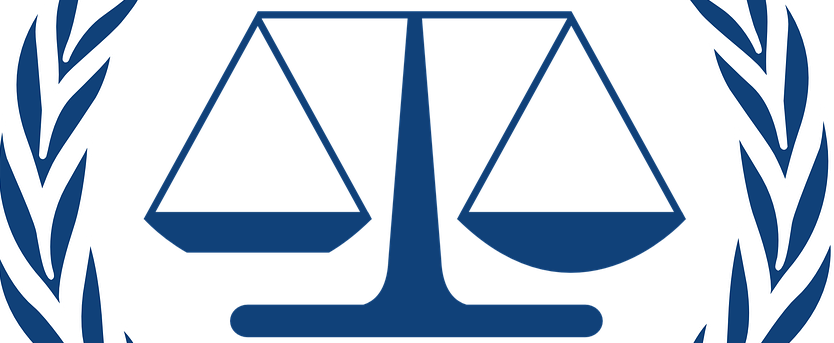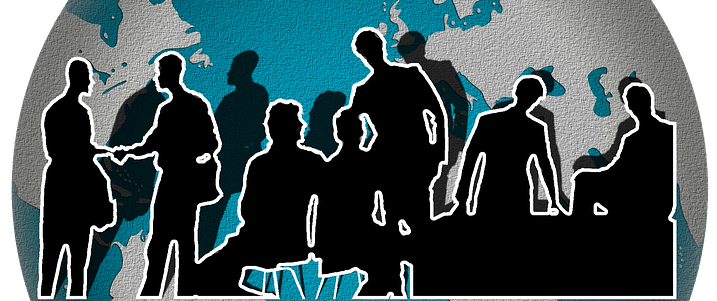Hoofdstuk 1: Hoe verloopt het diagnostisch proces?
1. Wat is een diagnostisch proces?
- Als niet-wetenschappelijk gereguleerd denk- en doeproces dat tot verantwoorde uitspraken leidt over het gedrag of een probleem van de cliënt.
- Als wetenschappelijk gereguleerd denkproces dat tot verantwoorde uitspraken leidt over het gedrag of een probleem van de cliënt.
- Als wetenschappelijk gereguleerd denk- en doe proces dat tot verantwoorde uitspraken leidt over het gedrag of een probleem van de cliënt.
- Als wetenschappelijk gereguleerd doe-proces dat tot verantwoorde uitspraken leidt over het gedrag of een probleem van de cliënt.
2. Welke drie elementen staan centraal binnen de klinische psychodiagnostiek?
3. Wat zijn de vijf basisvragen binnen de klinische psychodiagnostiek?
4. Welke fasen doorloop je binnen de diagnostische cyclus?
5. Welke uitspraak klopt?
A) Alleen de aanvraag van de verwijzer is van belang
B) Alleen de hulpvraag van de cliënt is van belang
C) Zowel de aanvraag van de verwijzer als de hulpvraag van de cliënt is van belang
Hoofdstuk 2: Hoe is de kwaliteit van de diagnostiek?
1. Welke drie referentiekaders zijn er binnen de psychodiagnostiek?
2. Wat houdt het simple-structure idee van Thurstone in?
3. Op welke 7 criteria worden tests beoordeeld, volgens de APA?
4. Vul aan: Hoe ……… de betrouwbaarheid, hoe ….... de standaardmeetfout.
5. Wat is het verschil tussen fouten van de eerste soort en fouten van de tweede soort?
6. Wat is het verschil tussen een klinisch en statistisch georiënteerde diagnosticus?
7. Op welke vier plekken kunnen vertekeningen voorkomen bij het informatieverwerkingsproces?
8. Wat zijn de drie belangrijkste punten voor test fairness?
Hoofdstuk 3: Hoe verloopt het intakegesprek?
1. Welke twee doelen staan centraal in een intakegesprek?
2. Wat is het verschil tussen de somatische en de geestelijke gezondheidszorg?
3. Wat betekent het als er een heteroanamnese gedaan wordt?
4. Noem de voor- en nadelen van het gestructureerde interview
Hoofdstuk 4: Hoe verloopt gedragsobservatie in de klinische psychologie?
1. Gestructureerde observatie…
- Gaat uit van observatie van een aantal gedragingen die vooraf niet worden vastgesteld
- Gaat uit van observatie van een aantal gedragingen die vooraf worden vastgesteld
- Gaat uit van observatie van alle gedragingen die plaatsvinden
2. Wat houdt de term “reactiviteit” in?
3. Wat is het verschil tussen event sampling en time sampling?
4. Welke twee heuristieken zijn met name van invloed op observatie in een klinische context?
Hoofdstuk 5: Wat zijn indirecte methoden?
1. Noem vijf reden voor waarom indirecte methoden een toegevoegde waarde hebben in het diagnostisch proces.
2. In welke categorieën kunnen de indirecte methoden worden onderverdeeld?
3. Wat zijn de twee basisregels voor een gestructureerde interpretatie?
4. Waar of niet waar: Projectieve tests hebben een goede betrouwbaarheid en validiteit.
Hoofdstuk 6: Wat zijn intelligentietests?
1. Wat is het verschil tussen vloeiende (fluid) en gekristalliseerde (crystallized) intelligentie?
2. Wat houdt het Flynn-effect in?
3. Wat zijn de gevolgen van het Flynn-effect voor intelligentietests?
4. Waarvoor is IQ een goede voorspeller?
5. Er kunnen bij het gebruik van intelligentietests in neuropsychologische vraagstellingen drie niveaus worden onderscheiden. Welke zijn dit?
Hoofdstuk 7: Wat zijn de vragen en methoden in de neuropsychologie?
1. Wat houdt lokalisationisme in?
2. Wat houdt holisme in?
3. Hoe is de hedendaagse kijk op het lokalisationisme en holisme?
4. Welke drie belangrijke misverstanden doen zich vaak voor met betrekking tot het neuropsychologisch onderzoek?
5. Welke drie soorten vraagstellingen zijn er binnen de neuropsychologische diagnostiek?
6. In welke vier categorieën kunnen de huidige neuropsychologische tests worden ingedeeld?
7. Op welke vier gebieden zijn er problemen met de interpretatie van een NPO?
8. Wat houdt het begrip sensitiviteit in?
9. Wat houdt het begrip specificiteit in?
Hoofdstuk 8: Wat zijn persoonlijkheidsvragenlijsten en waarom worden ze gebruikt?
1. Hoe kan persoonlijkheid het best worden gedefinieerd?
2. Welke vijf stappen worden doorlopen bij het ontwikkelen van een persoonlijkheidsvragenlijst?
Hoofdstuk 9: Hoe worden vragenlijsten gebruikt voor het meten van probleemgebieden?
1. Wanneer worden algemene psychopathologievragenlijsten ingezet? En wanneer specifieke tests?
2. Op welke drie theorieën is de Nederlandse Vragenlijst voor Eetgedrag gebaseerd?
3. Bij welke drie basisvragen worden algemene vragenlijsten vooral ingezet?
4. Bij welke basisvragen worden specifieke vragenlijsten vooral ingezet?
Hoofdstuk 10: Wat is klinische computerdiagnostiek?
1. Noem de acht voordelen van computerdiagnostiek.
2. Wat zijn de vijf nadelen van computerdiagnostiek die in het boek genoemd worden?
3. Wat is het verschil tussen lineair en adaptief testen?
4. Wat is een extra nadeel van online testen?
Hoofdstuk 11: Wat zijn ethische aspecten van rapportage en diagnostiek?
1. Wat zijn de belangrijkste punten uit de beroepsethiek die is opgesteld door het NIP?
2. Welke drie domeinen omslaan de deskundigheid van de psycholoog, volgens het NIP?
3. Waar of onwaar: De cliënt heeft tijdens het PO (psychodiagnostisch onderzoek) recht op alle informatie.
4. Waar of onwaar: De cliënt kan in sommige gevallen gedwongen worden aan een PO mee te doen, zoals bijvoorbeeld in rechtszaken.
5. Op welke drie manieren kan het onderzoeksrapport gestructureerd worden?
Hoofdstuk 12: Wat is de Dynamische-persoonlijkheidsdiagnostiek?
1. Wat is het verschil tussen beschrijvende (descriptieve) en structurele psychodiagnostiek?
2. Wat houdt 'the rich get richer' in?
3. Welke drie niveaus van persoonlijkheidsorganisatie (PO) onderscheidde Kernberg?
4. Aan de hand van welke drie criteria wordt het niveau van de PO bepaald?
Hoofdstuk 13: Hoe kan het diagnostisch besluitvormingsproces verlopen?
1. Wat zijn de twee hoofdfases van een diagnostisch onderzoek?
2. Wat is een voorbeeld van een diagnostissche onderkennende vraag?
Antwoorden
Hoofdstuk 1
1. C
2. (1) Het vormen van theorie op basis van de problemen, klachten en problematische gedragingen, (2) De operationalisatie en de meting ervan, en (3) het toepassen van diagnostische methoden.
3. Onderkenning, verklaring, predictie, indicatie, evaluatie.
4. De diagnostische cyclus omvat de volgende fases: observatie, inductie, deductie, toetsing en evaluatie.
5. C
6. Het diagnostisch onderzoek bestaat uit zes stappen: (1) hypothesevorming; (2) keuze van onderzoeksmiddelen; (3) formulering van toetsbare voorspellingen; (4) afname en scoring van de tests; (5) argumentatie met een samenvatting van der resultaten van het onderzoek; en (6) verslag.
Hoofdstuk 2
1. De drie referentiekaders zijn: (1) individuele verschillen; (2) ontwikkeling; en (3) context.
2. Het simple-structure idee van Thurstone houdt in dat alle variabelen die worden gemeten onafhankelijk van elkaar zijn, zo dat je ook écht verschillende dingen meet en niet twee dingen die heel veel overlap vertonen. Dit wordt bekeken met behulp van een factoranalyse.
3. (1) uitgangspunten van de testconstructie; (2) kwaliteit van het testmateriaal; (3) kwaliteit van de handleiding; (4) kwaliteit van de normen; (5) kwaliteit van de betrouwbaarheidsgegevens; (6) begripsvaliditeit; en (7) criteriumvaliditeit.
4. Hoger, lager.
5. Een fout van de eerste soort houdt in dat er wordt beweerd een relatie te zijn, terwijl die er eigenlijk niet is (dit heet ook wel Type 1 fout). Een fout van de tweede soort houdt in dat er geen relatie wordt waargenomen, terwijl die er in werkelijkheid wel is. Dit ligt dan vaak aan de testconstructie (dit heet ook wel een Type 2 fout).
6. Een klinisch georiënteerde statisticus probeert door middel van dialogen met de cliënt meer te weten te komen over hem of haar. Ook maakt de klinische diagnosticus veel gebruik van zijn of haar eigen ervaring en intuïtie om tot een diagnose te komen. De statistische diagnosticus houdt zich veel meer bezig met formule en tests en met het vergelijken van de cliënt met een normgroep om tot een diagnose te komen.
7. (1). Bij de verwerving: availability-heuristiek; (2) Bij de verwerking; (3) Bij het beoordelen van de uitkomst van de informatie; (4) Bij het omgaan met feedback: geen zicht op kans.
8. Het belangrijkste bij test fairness is dat er geen sprake is van bias of vertekening. Het tweede is dat er een gelijke behandeling van personen in het testproces is. Ten slotte moet het voorkomen worden dat een geteste zelf oneerlijk is.
Hoofdstuk 3
1. Het belangrijkste doel van een intakegesprek is informatieverzameling en dan vooral informatie die antwoord geeft op de verwijsvraag. Een ander belangrijk doel is een relationeel doel, wat inhoudt dat er een goede werkrelatie wordt opgebouwd.
2. Er moeten aan een aantal voorwaarden worden voldaan die betrekking hebben op de a) omgeving b) de kennis en c) de vaardigheden van de gespreksleider.
3. Bij de somatische gezondheidszorg wordt gewerkt vanuit een uitsluitingscriterium. In de geestelijke gezondheidszorg wordt gewerkt met een insluitingcriterium.
4. Bij heteroanamnese worden ook goede bekenden en familie van de cliënt betrokken bij het proces.
5. Voordelen: (1) beter vast te stellen en hogere betrouwbaarheid, (2) betere inschatting ernst van de klachten, (3) vermindering van informatie- en criteriumvariantie, en (4) grotere omvattendheid die onderzocht wordt. Nadelen: (1) afname kost veel tijd en geld, (2) hulpverlener moet goed getraind worden, en (3) relatief weinig aandacht voor de motivatie en context van de cliënt.
6. Een beoordelingsschaal wordt gebruikt om van een beoordelaar een gestandaardiseerde beoordeling vragen op een vooraf vastgelegde onderwerpen. Dit wordt het gestructureerde klinische oordeel als product genoemd. Het proces is niet vastgelegd, dus de clinicus mag zelf weten hoe hij of zij tot zijn beoordeling komt (door gesprekken, dossieronderzoek of een combinatie van methoden).
Hoofdstuk 4
1. B
2. Reactiviteit houdt in dat de cliënt zich waarschijnlijk iets anders zal gedragen als hij weet dat hij geobserveerd wordt.
3. Time sampling houdt in dat gedrag op vaste tijdstippen word geobserveerd. Dit wordt gekozen als men een indruk wil krijgen in hoe variabel iemand zijn of haar gedrag is.
Event sampling houdt in dat er alleen wordt geobserveerd wanneer het gedrag voorkomt. Dus, als iemand geinteresseerd is in buikpijn, dan wordt er bij event sampling alleen gekeken naar wanneer het kind buikpijn heeft. Dit wordt vaak gekozen wanneer men geïnteresseerd is in de inhoud, kwaliteit en frequentie van het gedrag.
4. Toegankelijkheid: De directe beschikbaarheid van bepaalde herinneringen.
Eerste indruk: De neiging van mensen om vast te houden aan de eerste indruk die zij hebben.
Hoofdstuk 5
1. Projectieve tests hebben toegevoegde waarde omdat: (1) ze informatie kunnen geven over processen waar de cliënt zelf geen inzicht in heeft; (2) ze minder gevoelig zijn voor sociale wenselijkheid doordat het doel niet duidelijk is; (3) het staat mogelijk ook functionele diagnostiek toe; (4) ze kunnen helpen om de impliciete processen in kaart te brengen; (5) ze kunnen de validiteit verhogen als er meerdere verschillende methoden worden gebruikt.
2. Alle indirecte methoden kunnen ingedeeld worden in de volgende categorieën: afmaakmethoden, expressieve methoden, associatiemethoden, keuze- of ordeningsmethoden, en constructiemethoden.
3. Er zijn twee basisregels vanuit de hermeneutiek (de uitlegkunde): (1) een dialectiek tussen enerzijds het te interpreteren element en anderzijds de context van het element, (2) convergentie en geen divergentie van betekenissen.
4. Nee, dat is niet waar.
Hoofdstuk 6
1. Het fluid IQ geeft het intelligentieniveau weer wanneer iemand wordt geconfronteerd met niet eerder opgeloste problemen, het crystallized IQ geeft een indicatie van het mentaal functioneren dat vooral door school en ervaring wordt gecreëerd.
2. Het Flynn-effect houdt in dat bij niet-verbale intelligentietests de gemiddelde score van de bevolking gemiddeld met vijf IQ-punten stijgt per tien jaar.
3. Normen voor intelligentietests verouderen snel en tests worden minder betrouwbaar vanwege de overschatting van het intelligentieniveau.
4. Schoolsucces en leervaardigheid.
5. (1) niveau van de testprestatie (het actuele niveau); (2) niveau van inventarisatie van stoornissen, waarbij de intelligentietest wordt gebruikt als neuropsychologische test om te kijken of er sprake is van achteruitgang in specifieke gebieden; (3) medische oorzaken voor de gedragsproblemen.
Hoofdstuk 7
1. Lokalisationisme houdt in dat stoornissen in een specifiek hersengebied leiden tot specifieke gedragsveranderingen.
2. Het holisme legt de nadruk op algemene gedragsgevolgen als gevolg van stoornissen in de hersenen als geheel en dus niet in specifieke hersengebieden.
3. Tegenwoordig overheerst de gedachte dat hersendysfuncties zowel selectieve (lokalisatie) als meer algemene gevolgen hebben.
4. (1) Neuropsychologisch is niet multidisciplinair. Dit klopt niet: neuropsychologisch onderzoek houdt zich niet alleen bezig met het cognitief en intellectueel functioneren van iemand, maar ook met de emotionele en sociale factoren, de persoonlijkheid en het dagelijkse functioneren.
(2) Het antwoord (de verklaringsvraag) is een medische diagnose of een lokalisatie.
(3) De neuropsycholoog moet zich beperken tot de vraagstelling zoals geformuleerd door de opdrachtgever.
5. (1) Wat is het cognitieve profiel van de patiënt? Dus: welke stoornissen zijn er in gedrag, cognitie en emotie? (2) Wat is de relatie tussen gedrag en hersenbeschadiging in gevallen waar de beschadiging al is aangetoond? (3) Wat is de relatie tussen gedrag en hersenbeschadiging in gevallen waar de beschadiging nog niet is aangetoond?
6. (1) algemene niveau- en screeningtests; (2) specifieke tests voor het cognitieve functioneren, opgedeeld in functiedomeinen; (3) tests voor emotioneel functioneren, persoonlijkheid en attitudes; (4) klinimetrische methoden.
7. De testvoorwaarden, het pre morbide functioneren, de multiconditionaliteit en de verhouding tussen sensitiviteit en specificiteit.
8. Sensitiviteit geeft aan hoe vaak een ongunstige testscore (dat wil zeggen een score onder een bepaalde cut-off waarde) voorkomt bij personen met een diagnose. Met andere woorden: mensen met een diagnose in het echte leven, worden volgens een bepaalde test niet geclassificeerd.
9. Specificiteit houdt in hoe vaak een gunstige testscore (dat wil zeggen: een score boven een bepaalde cut-off waarde) voorkomt bij mensen zonder een diagnose. Dit zijn dus ‘gezonde’ mensen, die volgens de test wel een diagnose hebben.
Hoofdstuk 8
1. Persoonlijkheid zijn de min of meer stabiele eigenschappen van iemand die gelijk blijven over verschillende situaties.
2. (1). Het formuleren van het construct: specificeren welke persoonlijkheidskenmerken je wil meten; (2) items ontwikkelen die aansluiten bij het doel van de vragenlijst; (3) items controleren om te kijken of ze voldoen aan de criteria; (4) items bundelen tot schalen; (5) onderzoeken van de betrouwbaarheid en validiteit.
3. De divergente en convergente validiteit.
Hoofdstuk 9
1. Algemene psychopathologievragenlijsten worden in de GGZ gebruikt om een algemeen beeld van het psychisch functioneren van een persoon te krijgen. Op basis van de scores op dergelijke tests kan worden besloten specifieke tests in te zetten.
2. De psychosomatische theorie, externaliteittheorie en de theorie van lijngericht gedrag.
3. De algemene vragenlijsten zijn vooral van nut bij de beantwoording van predictievragen, indicatievragen en evaluatievragen.
4. Specifieke vragenlijsten kunnen worden gebruikt bij onderkenningsvragen, verklaringsvragen, predictievragen, indicatievragen en evaluatievragen.
Hoofdstuk 10
1. (1) het scoren van tests is betrouwbaarder; (2) het berekenen van testscores is betrouwbaarder; (3) het kan een hoop tijd besparen; (4) scores kunnen direct worden vergeleken met normtabellen; (5) soms kan een systeem direct een heel rapport opstellen; (6) cliënten antwoorden eerlijker; (7) er kan gebruik worden gemaakt van audiovisuele technieken; en (8) er is de mogelijkheid tot adaptief testen.
2. De nadelen van computerdiagnostiek zijn: (1) de aanbiedingsvorm is anders: er worden maar een beperkt aantal items aangeboden; (2) participanten kiezen sneller voor de antwoordoptie die direct in beeld komt; (3) een rapport kan scores op individuele items negeren terwijl deze voor een psycholoog juist bruikbaar en interessant zijn; (4) de interpretatie van scores is niet altijd empirisch onderbouwd; (5) de veiligheid van tests en testscores kan in het geding komen.
3. Van lineair testen is sprake als elke proefpersoon dezelfde hoeveelheid items op dezelfde manier aangeboden krijgt, in dezelfde volgorde. Bij adaptief testen wordt de moeilijkheid aangepast aan het niveau van de cliënt.
4. De tests die online worden aangeboden zijn vaak niet empirisch onderbouwd, niet betrouwbaar, niet valide en niet genormeerd. Dit is ongewenst, omdat ‘gewone mensen’ deze tests soms gebruiken voor zelfdiagnose!
Hoofdstuk 11
1. Verantwoordelijkheid, integriteit, respect en deskundigheid.
2. (1) De theoretische kennis en vaardigheden van de psycholoog; (2) Dat een psycholoog zijn eigen grenzen en beperkingen kent; (3) Het juiste verloop van een psychodiagnostisch onderzoek.
3. Waar.
4. Onwaar.
5. (1) rondom de cliënt; (2) rondom de diagnostische methoden; (3) rondom de vraagstelling/hypothesen.
Hoofdstuk 12
1. Wat is het verschil tussen beschrijvende (descriptieve) en structurele psychodiagnostiek?
Beschrijvende diagnostiek kan worden omschreven als het in kaart brengen van stoornissen en klachten. Structurele diagnostiek kijkt naar de mechanismen die ten grondslag liggen aan deze klachten, zoals draagkracht, integratieve vermogens en dynamiek.
2. Dit houdt in dat patiënten met een hoog niveau van functioneren beter reageren op behandeling dan patiënten die laag functioneren.
3. Welke drie niveaus van persoonlijkheidsorganisatie onderscheidde Kernberg?
Een neurotische persoonlijkheidsorganisatie (NP), een borderline-persoonlijkheidsorganisatie (BPO) en een psychotische persoonlijkheidsorganisatie (PPO).
4. Aan de hand van de mate van identiteitsintegratie, rijpheid van afweermechanismen en realiteitstoetsing.
Hoofdstuk 13
1. De eerste fase van het diagnostische onderzoek is een open informatieverzameling met als doel de problemen van de cliënt te formuleren als hypotheses. Hierbij zijn literatuuronderzoek en het kennismakingsgesprek van groot belang. De tweede fase is het testen van de hypotheses om te bepalen of de hypotheses behouden dan wel verworpen dienen te worden.
2. Een voorbeeld van zo’n vraag is: welke problemen zijn er aanwezig?










 SUMMARIES
SUMMARIES












































